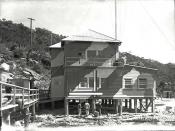Any discussion of the causes of dyslexia must, as we shall see, be a complex and controversial undertaking; even the title may raise controversy: what is 'dyslexia'? Is it the same as 'specific learning difficulties'? Can it be defined as a single problem? Is there a continuum of dyslexic-type difficulties? Should we be using a label at all? The questions are many, and with very few satisfactory answers. For this reason, it is necessary to begin with a working definition of dyslexia, before discussing what may cause it. Once this has been established, it will be seen that the cited causes may be usefully grouped into several categories (genetic, perceptual, neurological and linguistic). Each of these areas will be examined in some depth, and the evidence evaluated. It will be found that, as yet, no single cause can be definitively established, but that studies into information and language processing in the brain seem to offer the most promising possibilities for the future.
Due to the complex nature of the problem, and the many different ways in which it manifests itself, it is impossible to find a definition upon which everyone may agree. Nevertheless, several definitions exist which may serve as a starting point. An early definition by Critchley is that dyslexia is "a disorder of children who, despite conventional classroom experience, fail to attain the language skills of reading, writing and spelling commensurate with their intellectual abilities." This raises two main points: what is 'conventional classroom experience', and how can we prove which level of language skills is 'commensurate with intellectual ability'? This definition was improved upon in 1978 by Critchley and Critchley: "children with specific learning difficulties are those who in the absence of sensory defect or overt organic damage, have an intractable learning problem in one or more...



Great essay
I think this is a great essay!!! It was just what I needed to help me with my paper. Thanks...
7 out of 7 people found this comment useful.